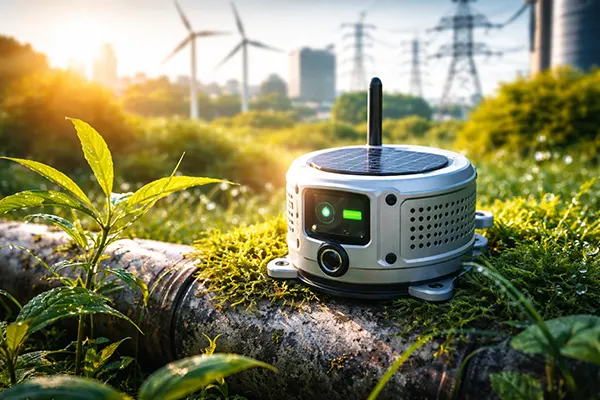Health Tracking Technologies: How Gadgets Help Monitor the Body
Health tracking technologies have become an integral part of modern life, offering innovative solutions to monitor and manage health. These gadgets are designed to provide real-time insights, helping users adopt healthier lifestyles and address medical concerns effectively. By combining advanced technology with user-friendly designs, health monitoring gadgets cater to a wide range of needs, from fitness enthusiasts to individuals managing chronic illnesses.
The Evolution of Health Tracking Gadgets
Health tracking gadgets have come a long way from their early beginnings as simple tools like pedometers. Initially designed to count steps, these devices have grown into sophisticated instruments capable of monitoring a wide range of biometrics. Over the years, technological advancements have enabled the development of fitness bands, smartwatches, and wearable medical devices, which now integrate features like artificial intelligence and machine learning. These innovations have transformed health tracking gadgets into essential tools for both personal health monitoring and professional medical use.
The history of health tracking technologies reflects the increasing demand for precise, user-friendly tools that can seamlessly integrate into daily life. Today, gadgets are not limited to fitness enthusiasts but are also widely used by healthcare providers and individuals managing chronic illnesses. This evolution has revolutionised the way people approach their health, making it easier to adopt healthier lifestyles and monitor medical conditions effectively.
From Basic to Advanced Health Monitors
The transition from basic to advanced health monitors is marked by several milestones. Early devices like pedometers and calorie counters provided limited insights into health metrics. However, with the integration of heart rate sensors, sleep trackers, and GPS capabilities, health gadgets began to offer a more comprehensive picture of a user’s well-being. Today’s smartwatches and fitness trackers include features like electrocardiogram (ECG) readings, blood oxygen saturation (SpO2) levels, and stress monitoring. These advancements have made health tracking more accessible, reliable, and impactful.
How Gadgets Enhance Health Awareness
Health tracking gadgets empower users by providing real-time data about their physical condition. This information allows individuals to make informed decisions about their diet, exercise, and lifestyle choices. The ability to set goals, receive reminders, and track progress has proven invaluable in fostering healthier habits. Gadgets also play a crucial role in early detection of potential health issues, such as irregular heartbeats or sleep disorders, enabling timely medical intervention.
One of the significant advantages of health tracking gadgets is their ability to personalise health insights. Using data analytics and machine learning, these devices can create tailored recommendations for users, improving the overall effectiveness of health management. For example, a smartwatch may suggest specific exercises based on a user’s activity history or recommend optimal sleep schedules based on circadian rhythm analysis.
The Role of Mobile Applications
Mobile applications complement health gadgets by providing a platform for data storage, analysis, and reporting. These apps allow users to visualise their progress through graphs and charts, making it easier to understand their health metrics. Many applications also offer features like calorie tracking, workout plans, and integration with other health tools, such as smart scales and blood pressure monitors.
Gamification is another popular feature of health apps, which motivates users through challenges, rewards, and social sharing. By making health tracking engaging and interactive, these apps ensure consistent use and better outcomes. For healthcare providers, these applications offer valuable data that can inform treatment plans and improve patient outcomes.

The Future of Health Tracking Technologies
The future of health tracking technologies is incredibly promising. Researchers are developing wearable devices with non-invasive glucose monitoring, biosensors for tracking hydration levels, and wearable ECG monitors capable of detecting heart conditions in real-time. These innovations aim to make health tracking more precise, accessible, and user-friendly. Additionally, the integration of virtual reality (VR) and augmented reality (AR) into health gadgets could redefine fitness training and rehabilitation exercises.
The incorporation of AI-driven insights into these devices is another area of growth. Artificial intelligence can identify patterns in health data, predict potential health risks, and provide recommendations for prevention. Such capabilities have the potential to revolutionise preventive healthcare, enabling individuals to take proactive measures before issues arise.
Challenges and Ethical Considerations
Despite their benefits, health tracking technologies face challenges related to data privacy, accuracy, and accessibility. Ensuring the security of sensitive health data is a top priority for manufacturers, as breaches could have severe consequences. Additionally, the accuracy of health metrics needs to be continually validated to maintain user trust.
Ethical considerations also come into play, particularly regarding the use of health data for commercial purposes. Clear guidelines and regulations are necessary to protect users and ensure that these technologies are developed and used responsibly. As health tracking gadgets become more integral to healthcare, addressing these challenges will be crucial to their continued success and adoption.







